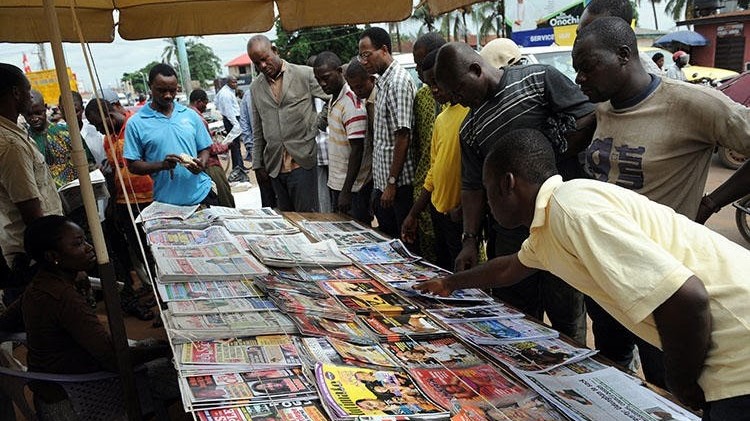COVID-19: Nigerian Journalists Decry Poor Working Conditions During Pandemic

Journalists in Nigeria are complaining that adequate attention has not been paid to their welfare and that they lack protection as they risk their safety to report the news during the COVID-19 pandemic.
This is according to a survey conducted by media and civil society groups, including the Wole Soyinka Centre for Investigative Journalism (WSCIJ), Enough is Enough (EiENigeria), International Press Centre (IPC), International Centre for Investigative Reporting (ICIR), and Premium Times Centre for Investigative Journalism (PTCIJ).
The survey was conducted between April 27 and May 1 and received responses from 463 journalists, including reporters, editors, freelancers, and presenters from 73 media organisations across 33 states and the Federal Capital Territory (FCT).
In a press statement released on Friday and signed by Lanre Arogundade, IPC Executive Director, the groups urged media executives to better equip and safeguard their employees.
While 84 per cent of the respondents have been outdoors to source for news since the coronavirus outbreak in Nigeria, only 35 per cent said their employers provided them with some form of additional support during assignments to keep them safe.
The support mostly came in the form of hand sanitisers, face masks, hand gloves, access to official vehicles, additional monetary allowance, training, and provision of specialised equipment to encourage social distancing.
Some 81 per cent of the respondents said they needed more monetary allowances to purchase protective items, 70 per cent asked for special insurance packages, and 64 per cent supported the organisation of mandatory training on covering the pandemic.
Other forms of support journalists they need include access to official vehicles, hand sanitisers, and protective wears, the survey revealed.
The group called on media owners and managers to provide more support for reporters on the field, ensure they were adequately insured and financially empowered, “while those owing salaries should have them paid”.
It further asked media organisations to equip journalists with personal protective equipment as well as train them on crowdsourcing and taking advantage of technological tools for stories to prevent needless fieldwork.
The media and advocacy groups encouraged civil society organisations operating in the media space to “lead advocacies for the safety and support of journalists during the pandemic” and asked freelance journalists to take advantage of available reporting grants.
Meanwhile, while journalists desire extra allowances to ensure their safety and as compensation for additional risks, a number of media organisations have already disclosed plans to cut salaries or lay off workers.
HumAngle reported in April that, asides the increased risk of contracting COVID-19, journalists in Nigeria, and across Africa, are also subjected to various levels of harassment over their work during the pandemic.
Support Our Journalism
There are millions of ordinary people affected by conflict in Africa whose stories are missing in the mainstream media. HumAngle is determined to tell those challenging and under-reported stories, hoping that the people impacted by these conflicts will find the safety and security they deserve.
To ensure that we continue to provide public service coverage, we have a small favour to ask you. We want you to be part of our journalistic endeavour by contributing a token to us.
Your donation will further promote a robust, free, and independent media.
Donate HereStay Closer To The Stories That Matter




